Search
Search Results
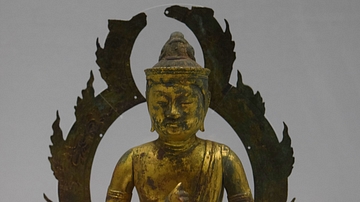
Image
Japanese Statuette of Buddha
This Japanese statuette of Buddha dates from the 12th century CE and the Heian Period. It was excavated at Mt. Nachi in Wakayama, Japan, and it is made of gilt bronze. (Tokyo National Museum)
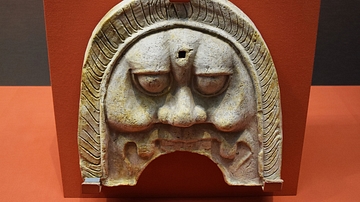
Image
Ancient Japanese Tile
This ridge-end tile is from the former Fuchidaka Temple site in Aichi, Japan. It dates from the 8th century CE, which corresponds to the Nara period in Japanese history. (Tokyo National Museum)
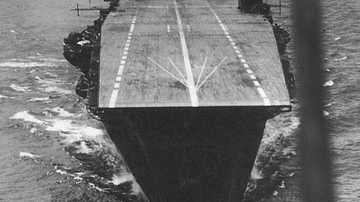
Image
Japanese Aircraft Carrier Akagi
A 1942 photograph of the Japanese aircraft carrier Akagi. Aichi D3A Type 99 dive bombers are preparing for takeoff. Taken during the Indian Ocean Raid (March 1942) which attacked Sri Lanka (then called Ceylon).
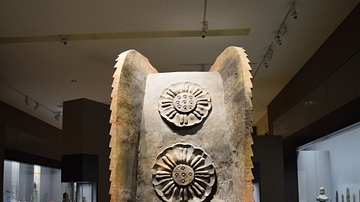
Image
Japanese Ridge-End Ornament
This large block comes from the ruins of Tosaka-dera (Takaidahaiji) in Osaka, Japan. It dates from the Asuka period or the Nara period in Japanese history, which overlapped with the 7th and 8th century CE. (Tokyo National Museum)

Video
Japanese Art History: Asuka & Nara Periods
The Impact of China and Buddhism on Japanese art during the Asuka and Nara Periods.

Image
Japanese Imperial Regalia
An aritst's impression of three items from the unseen Japanese imperial regalia. In Japanese mythology the sun goddess Amaterasu gave her son Ninigi three gifts to aid his rule on earth: the Yasakani, a fabulous jewel (or pearls or magatama...

Article
Tea in Ancient China & Japan
Tea, still probably the world's most popular prepared beverage, was first drunk by Chinese monks to aid meditation and those who valued its medicinal qualities, but it quickly grew in popularity, spreading to other East Asian cultures, especially...
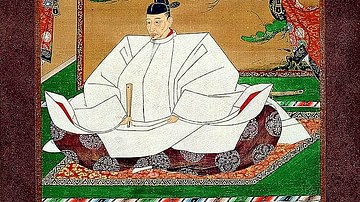
Definition
Toyotomi Hideyoshi
Toyotomi Hideyoshi (1537-1598 CE) was a Japanese military leader who, along with his predecessor Oda Nobunaga (1534-1582 CE) and his successor Tokugawa Ieyasu (1543-1616 CE), is credited with unifying Japan in the 16th century CE. Hideyoshi...

Definition
Tokugawa Iemitsu
Tokugawa Iemitsu (1604-1651) governed Japan as the third shogun of the Edo period. He implemented a number of important policies that not only consolidated his family's hold on power but also greatly impacted Japanese society for several...

Definition
Tale of Genji
The 'Tale of the Genji' or Genji Monogatari, written in the 11th century CE by Murasaki Shikibu, a court lady, is Japan's oldest novel and possibly the first novel in world literature. The classic of Japanese literature, the work describes...